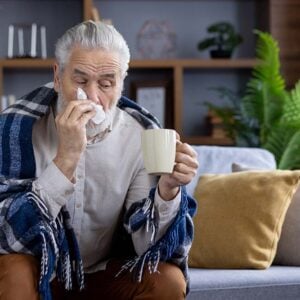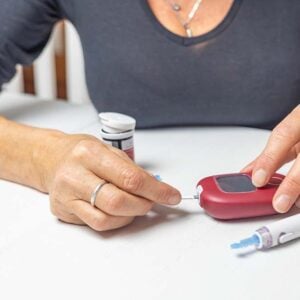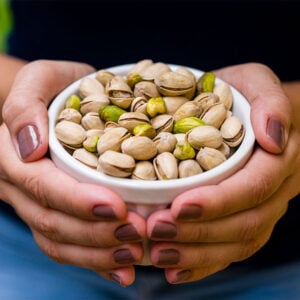
How Being “Boring” Can Save Your Life!
Dear Reader,
I get plenty of excitement in my life.
I hike, hunt, go mountain biking, and love to swim in an ice-cold stream by my house.
But if you followed me on a typical day, you might think I’m a little boring.
I get up and go to bed at about the same times every day… and I eat my meals on a pretty predictable schedule, too.
In other words, I have a routine.
And if you have a routine, too… if someone might say you’re a little “boring”… don’t get mad. Take it as a compliment!
Because research is showing that having a routine can be the secret to good and long-lasting health.
And it may even help you beat some of the most devastating diseases around.
The reason routine is so important is because it helps regulate the tiny clocks in your body.
Your body has a central clock in the brain, called the suprachiasmatic nucleus. It responds to light entering the eyes, and then helps the body keep time with the earth.
Not having a routine can not only throw off this master clock, it can throw off the tiny clocks in your organs and tissues.
Three recent studies showed how something so seemingly simple can have such a big impact on health.
Heart surgery complications. If you’re planning on having heart surgery, better schedule it for the afternoon.
A study published in the prestigious Lancet journal found that people who have open heart surgery in the afternoon have a lower risk of complications than those who have morning surgeries.
That’s because the circadian rhythm influences the heart tissue’s ability to recover after being deprived of oxygen during surgery. It turns out that heart cells are at their peak later in the day – which means that’s when they do a better job of dealing with the trauma of surgery.
Back pain. You’re probably wondering what back pain could have to do with circadian clocks. More than you’d think.
We have intervertebral disks that function as shock-absorbers between the vertebrae and the spine. It turns out that tiny circadian clocks are located in those important shock-absorbers.
A study in mice found that any disruptions in the clocks in these disks caused the discs to degenerate (age faster) – a problem that leads to back pain.
Weight gain. When it comes to weight gain – or loss – when you eat is as important as what. Researchers compared people who eat from noon-11p.m. to those who ate from 8a.m.-7p.m. Both groups had an 11-hour window of eating, and both groups ate the same food.
But that’s where the similarities end.
The later eaters gained weight and had higher levels of markers associated with heart disease and diabetes.
This might seem strange until you factor in your circadian rhythm, and the fact that your body responds differently to food based on the time of day.
For example, the hormones that regulate glucose are controlled by internal clocks in those organs. Delaying meals can throw off the synchronicity of those clocks, causing your whole body to function less efficiently.
The best routine you can follow to set your body’s internal clock is to get plenty of morning light in your eyes, and reduce exposure to blue light at night.
And try to go to bed and get up at about the same time every day. You won’t believe how much better these simple changes can help you feel.
To a brighter day,
Dr. Richard Gerhauser, M.D.
Written By Dr. Richard Gerhauser, M.D.
For years he’s been the trusted doctor for celebrities, world-class athletes, and countless seniors looking to reclaim their health.
And now…for the first time ever… he’s making his medical breakthroughs available to readers all across America.
Dr. Richard Gerhauser, M.D. is one of the most pioneering and innovative minds in medicine today – and he delivers cutting-edge cures each month through his Natural Health Response newsletter.
Natural Health Response readers get full access to Dr. Gerhauser’s protocols for chronic pain… heart disease… diabetes… Alzheimer’s… and even cancer. These are the very same treatments Dr. Gerhauser recommends to his own patients at his practice in Tucson, Arizona.
In addition to being a board-certified medical doctor, Dr. Gerhauser has earned two master’s degrees and has served as a clinical professor at the University of Arizona.
And as a physician at the world-famous Canyon Ranch, Dr. Gerhauser treated celebrities from around the world who paid dearly for the type of next-generation health information he provides Natural Health Response readers each month.
View More Free Articles
FDA Declares Popular Decongestant USELESS
If you’ve ever turned to over-the-counter (OTC) cold meds for relief from a stuffy nose, well this news may surprise you… The FDA is proposing a ban on oral phenylephrine, the ingredient in many popular decongestants. Why? Because it doesn’t work. Despite being the main decongestant ingredient in OTC brands like Sudafed PE, Tylenol Cold […]
5 Ways to “Beat the Bloat” This Thanksgiving
As we prepare for Thanksgiving week, there’s a lot to look forward to and be thankful for. Family gatherings, football games, great food, and even better desserts top the list. Then there are all the leftovers. It’s not a holiday that’s known for moderation. But if you’re not careful, overdoing it on Thanksgiving could leave […]
Eat THIS to Reduce Your Risk of 14 Cancers
I’m a meat-and-potatoes guy. I’ll never turn down a big, juicy steak. But even more than that… I’m a fish guy. There’s not much I like more than a perfectly grilled salmon. I hope you do, too, because salmon contains two potent nutrients tied to a reduced risk of 14 types of cancer. Omega-3s are […]
The Bad Habit Robbing YEARS from Your Life
I often get eye-rolls when I stress just how essential lifestyle factors like light reducing pollution and grounding are good for health. But new research continually proves that I’ve been right all along. Today, a critical new study shows that something I’ve warned you about for YEARS is tied to a 34 percent increased risk […]
Reduce Colon Cancer Risk by 30%
More than 150,000 people are diagnosed with colorectal cancer yearly. Another 35,000 will get a liver cancer diagnosis. But if you have type 2 diabetes, your risk of developing one of these skyrockets—a 47 percent increased risk of colorectal cancer, and a two to three times higher risk of liver cancer. That’s why I’m excited […]
“Dinner Plate” Danger Raises Prostate Risk
Did you know that prostate cancer is FAR more prevalent in developed parts of the world than in less developed regions? Strange right? What is it about our modern, developed society that’s attacking our male population? There are MANY answers to this question. The primary one I will focus on today is a significant environmental […]
The 5-Minute Solution to Better Blood Pressure
Are you one of the millions who battle the so-called “silent killer” hypertension? And do you have five minutes to spare daily? If so, you could be well on your way to significantly healthier blood pressure. Sound too good to be true? A new study proves it. And the best part? It’s incredibly easy If […]
“Eye-Opening” Benefits of Pistachios
Imagine if there were a daily snack that could protect your vision. Well, a recent study brings good news for the 20 million U.S. adults already battling macular degeneration—the leading cause of vision loss for those over 60. Adding a handful of pistachios to your diet might help shield your eyesight. Let’s take a “look.” […]
Get Better Blood Sugar This Holiday Season
Let’s face it. The holidays are NOT good for your waistline… or your blood sugar levels. Potlucks, family dinners, cookie exchanges, Christmas parties… you know the drill. So, if you’re one of the 98 million people on the brink of type 2 diabetes, it’s VITAL to take steps to manage your blood sugar levels as […]
Common Vitamin Is a Hidden Colon Cancer Shield
With aggressive colon cancer on the rise in younger people, I’m always on the lookout for research showing how we can all lower our risks. Over the past few months, I’ve shared studies showing that stress, oral bacteria, obesity, and circadian disruption are all tied to colon cancer. And just last week I revealed how […]










